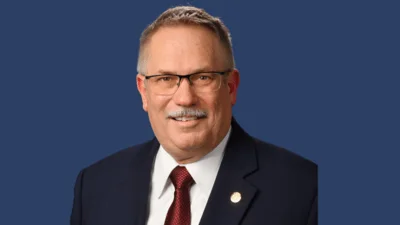City of Fenton recently issued the following announcement.
A series of six false statements related to the City’s local-street bond proposal appeared in a Hotlines feature in the Oct. 27 edition of the Tri County Times and on TCTimes.com.
On Tuesday, Nov. 2, whether the bond proposal passes will be up to the voters, as it always has been. The following is the factual information in response to the statements.
Statement (All statements appear as printed.)
I want our roads fixed – and maybe I’ll support the bond – but our population, property assessments and tax collections for 2020, 2021, 2022 are all-time highs. What exactly are they doing with that money?
Facts
This was covered in three public meetings the city held to discuss the proposal. As both charts below show, City property tax revenue has still not recovered from the dip initiated by the 2008 recession. While the City's taxable values are still behind pre-2008 values, state law requires reduction of the City's tax rate each year. You can see the funding gap (estimated to be at least $10 million cumulatively which will never be recovered) that the City dealt with by cutting jobs, outsourcing some services, and other methods.
Statement
It is totally disingenuous for Fenton leaders to keep pushing the same ol’ streets millage again, again and again.
Facts
As discussed in the three community conversation sessions and written about in mailings sent to every household in the city, this proposal is not the same as previous proposals. The main differences from the 2018 proposal are that the millage rate is much lower (3.5 vs. 5), and the proposal would get more money up front, improving more streets earlier in the plan before material and labor costs go up.
Statement
Get your ‘NO’ votes ready. Lacking any thought or effort to fix the roads, Fenton leaders are simply offering another millage proposal to put before voters. Guess they didn’t get the message last go around.
Facts
Again, as discussed in public meetings and mailings, the state gas tax simply does not provide enough revenue to do more than current maintenance, which includes snow removal and the filling of potholes. Federal money is not eligible to be used for neighborhood streets. Millages are how Michigan’s cities have been improving their streets.
As evidence: 73 Michigan municipalities either just approved street-improvement millages or renewed millages already in place. And even more municipalities are in the middle of programs previously approved. Again, local millages are how Michigan’s cities repair their deteriorating neighborhood streets.
Statement
From the folks who turned smooth Shiawassee Avenue into a washboard, ‘Give us money to fix your streets.’
Facts
Shiawassee was not smooth by any measure before it was repaired in 2021. A 2018 PASER rating conducted by OHM, the city’s engineering consultants, rated the street mostly as poor, or having a rating of 1-4 on a scale of 10. Also, since federal money was used for this main artery, it was done by an MDOT contractor whose contract was overseen by MDOT, not the City.
Statement
Anybody that votes for the new road tax deserves to pay higher property tax. You might be buying another $85,000 butterfly.
Fact
As previously reported by the Tri County Times on May 4, 2018, the butterfly sculpture was purchased and the mini-park around it was developed with a private donation of $17,000 combined with funds from the Downtown Development Authority.
Resources
More information on the bond proposal.
Original source can be found here.


 Alerts Sign-up
Alerts Sign-up